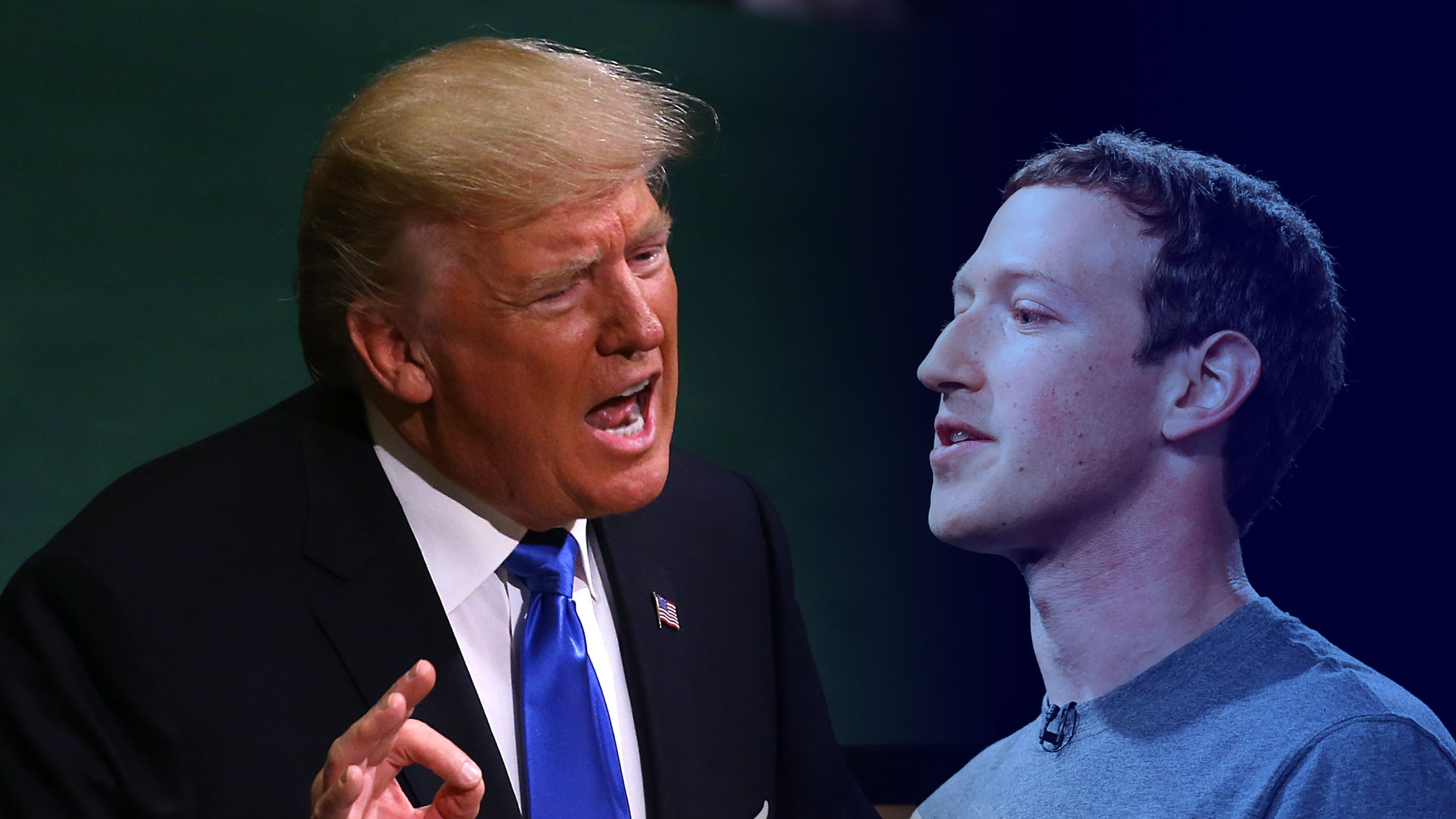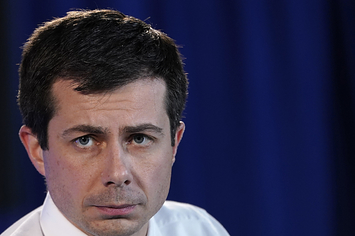Meta Under Trump: Zuckerberg's Challenges And Opportunities

Table of Contents
The Challenges of the Trump Era for Meta
The Trump presidency presented Meta with a series of formidable challenges, significantly impacting its operations and public perception.
Increased Regulatory Scrutiny
The Trump administration's aggressive stance on "fake news" and concerns surrounding data privacy intensified regulatory pressure on Meta. This heightened scrutiny manifested in several key areas:
- FTC Investigations: The Federal Trade Commission (FTC) launched multiple investigations into Meta's business practices, focusing on antitrust concerns and data privacy violations. These investigations resulted in significant fines and ongoing regulatory oversight.
- Antitrust Lawsuits: Meta faced numerous antitrust lawsuits alleging monopolistic practices and stifling competition in the social media market. These legal battles diverted resources and created uncertainty for the company.
- Political Advertising Regulations: Increased scrutiny of political advertising on Meta's platforms led to stricter regulations and increased pressure to enhance transparency and combat the spread of disinformation linked to political campaigns. This impacted both revenue and the company's reputation.
The Spread of Misinformation and Political Polarization
The Trump era witnessed a surge in the spread of misinformation and inflammatory content across social media platforms, with Meta bearing the brunt of the criticism. The company struggled to effectively moderate content and prevent the manipulation of its platform for political gain:
- 2016 Election Interference: The 2016 US Presidential election exposed the vulnerability of Meta's platform to foreign interference and the spread of disinformation campaigns aimed at influencing voter behavior.
- QAnon and other Conspiracy Theories: The rise of extremist groups and the proliferation of conspiracy theories like QAnon highlighted Meta's difficulties in effectively identifying and removing harmful content.
- January 6th Capitol Attack: The events leading up to and following the January 6th attack on the US Capitol underscored the role of social media in amplifying extremist ideologies and facilitating real-world violence. Meta faced intense criticism for its perceived role in this event.
Public Backlash and Negative Press
Meta and Zuckerberg faced significant public backlash and negative press throughout the Trump era. This negative perception stemmed from various controversies and missteps:
- Cambridge Analytica Scandal: The Cambridge Analytica scandal, which exposed the misuse of user data for political advertising, severely damaged Meta's reputation and fueled public distrust.
- Content Moderation Failures: Repeated failures to effectively moderate content, coupled with accusations of bias, further eroded public confidence in the platform's ability to protect users and uphold ethical standards.
- Boycotts and #DeleteFacebook Campaigns: The controversies surrounding Meta led to numerous boycotts and online campaigns encouraging users to delete their accounts, impacting user engagement and advertising revenue.
Opportunities Arising from the Trump Presidency for Meta
While facing significant challenges, Meta also benefited from certain aspects of the Trump era.
Increased Political Advertising Revenue
The highly polarized political climate during the Trump presidency resulted in a significant increase in political advertising spending on Meta's platforms.
- Increased Campaign Budgets: Both Republican and Democratic campaigns significantly increased their spending on targeted advertising to reach specific voter demographics.
- Micro-Targeting Capabilities: Meta's sophisticated data analytics and micro-targeting capabilities proved highly valuable to political campaigns seeking to reach specific segments of the population.
- Significant Revenue Growth: The surge in political advertising resulted in considerable revenue growth for Meta, despite the negative publicity surrounding the platform's role in political discourse.
Enhanced Data Collection and Targeting
Meta utilized its vast user data to refine its targeting capabilities, enhancing its influence on political discourse, but sparking significant ethical debate.
- Behavioral Targeting: Meta’s advanced algorithms allowed for hyper-targeted advertising based on users' online behavior, interests, and demographics.
- Political Influence Concerns: The ability to precisely target specific demographics with tailored political messages raised concerns about the potential for manipulation and the erosion of democratic processes.
- Data Privacy Concerns: The use of user data for political targeting exacerbated existing concerns about data privacy and the potential for misuse of personal information.
The Rise of Alternative Social Media Platforms (and Meta's Response)
The Trump presidency witnessed the emergence of alternative social media platforms, particularly those catering to conservative viewpoints. While these platforms posed a challenge to Meta's dominance, they also provided valuable insights:
- Parler and Others: Platforms like Parler gained traction among users seeking alternative spaces for political expression, highlighting Meta's limitations in addressing concerns about censorship and free speech.
- Meta's Response: Meta responded to this competition by making efforts to address content moderation concerns and improve user trust, although the platform faced considerable challenges.
- Market Share Implications: The rise of alternative platforms had a subtle, yet discernible impact on Meta's market share and dominance in the social media landscape, requiring strategic responses to retain user engagement.
Conclusion: Meta Under Trump: A Legacy of Challenges and Adaptation
The Trump era presented Meta with a unique and complex set of challenges and opportunities. Mark Zuckerberg's leadership was tested repeatedly as he navigated the turbulent political landscape, reacting to regulatory scrutiny, public backlash, and the changing dynamics of political discourse on social media. While the period brought significant financial gains through increased political advertising revenue, it also exposed vulnerabilities in content moderation, data privacy, and the overall ethical implications of social media's influence on politics. The legacy of "Meta Under Trump" is one of adaptation, demonstrating the company's capacity to withstand intense pressure but also highlighting the ongoing need for greater transparency, accountability, and ethical considerations in the social media ecosystem. Further research into specific policy changes implemented by Meta in response to the challenges of this period, as well as analysis of the long-term impact on political discourse, is crucial for understanding the evolving dynamics of social media and its influence on society.

Featured Posts
-
 500 Million Settlement Looms Major Canadian Bread Price Fixing Case Heads To Court
Apr 22, 2025
500 Million Settlement Looms Major Canadian Bread Price Fixing Case Heads To Court
Apr 22, 2025 -
 1 Billion Funding Cut Exclusive Look At Trumps Harvard Dispute
Apr 22, 2025
1 Billion Funding Cut Exclusive Look At Trumps Harvard Dispute
Apr 22, 2025 -
 Aramco And Byd Joint Venture Exploring The Future Of Electric Vehicles
Apr 22, 2025
Aramco And Byd Joint Venture Exploring The Future Of Electric Vehicles
Apr 22, 2025 -
 South Sudan Us Collaborate On Deportees Repatriation
Apr 22, 2025
South Sudan Us Collaborate On Deportees Repatriation
Apr 22, 2025 -
 Anchor Brewing Companys Closure 127 Years Of Brewing History Concludes
Apr 22, 2025
Anchor Brewing Companys Closure 127 Years Of Brewing History Concludes
Apr 22, 2025
